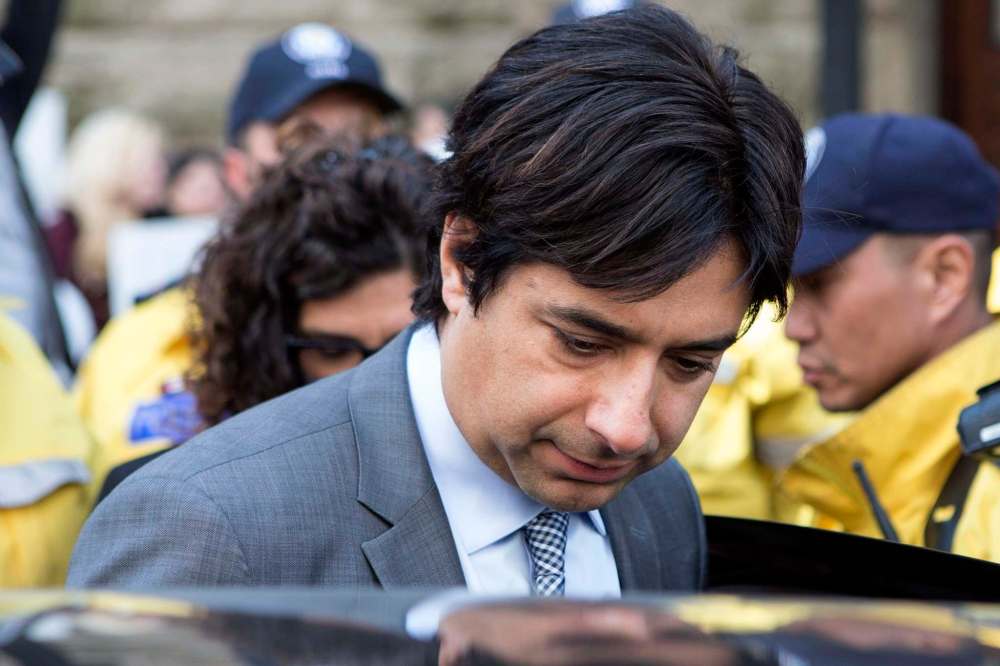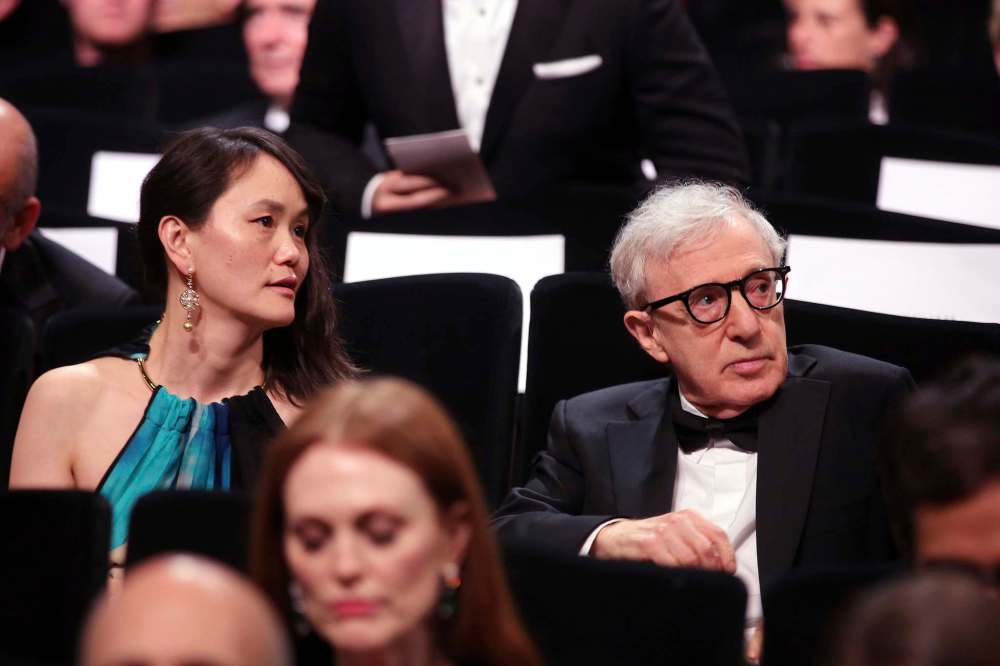Fame obscures abusive acts
Advertisement
Read this article for free:
or
Already have an account? Log in here »
To continue reading, please subscribe:
Monthly Digital Subscription
$0 for the first 4 weeks*
- Enjoy unlimited reading on winnipegfreepress.com
- Read the E-Edition, our digital replica newspaper
- Access News Break, our award-winning app
- Play interactive puzzles
*No charge for 4 weeks then price increases to the regular rate of $19.00 plus GST every four weeks. Offer available to new and qualified returning subscribers only. Cancel any time.
Monthly Digital Subscription
$4.75/week*
- Enjoy unlimited reading on winnipegfreepress.com
- Read the E-Edition, our digital replica newspaper
- Access News Break, our award-winning app
- Play interactive puzzles
*Billed as $19 plus GST every four weeks. Cancel any time.
To continue reading, please subscribe:
Add Free Press access to your Brandon Sun subscription for only an additional
$1 for the first 4 weeks*
*Your next subscription payment will increase by $1.00 and you will be charged $16.99 plus GST for four weeks. After four weeks, your payment will increase to $23.99 plus GST every four weeks.
Read unlimited articles for free today:
or
Already have an account? Log in here »
Hey there, time traveller!
This article was published 12/05/2016 (3467 days ago), so information in it may no longer be current.
With every year that passes, there are more blank spots in my vision, places once occupied by famous men who hurt women.
In time, this not-seeing comes easily. Culture becomes a threadbare tapestry of filmmakers whose movies I do not watch and athletes whose goals I do not cheer, of singers whose songs send me stretching to change the station. Given the options for how to meet them, I choose to ignore.
This is not a radical thing to do. Many would argue that calling these men out is a forever endeavour; maybe that is true. I choose not to see, knowing only that, for some people, not being seen is the strongest rebuke. What they desire from us is our attention, and that is one thing in my power to refuse.

Since 2005, there has been a fuzzy spot in my vision when it comes to the former host of a CBC Radio show. That year was the first time I heard a quiet warning, shared by a music industry friend at a Juno Awards party, that Jian Ghomeshi was “weird, with women.”
By then, at 23 years old, I’d learned whispers of that nature were often gifts. I heeded it and kept my distance. For nine years, I let his voice fade into white noise. I let the headlines he made blur and fade. More whispers came, the blank spot in my vision grew until I could not make out his shape.
So when the news broke in October 2014 that Ghomeshi had quit his radio show, my breath caught in my chest. Now we know how that saga ends, with a peace bond in place of a whimper and one small measure of accountability. It ends with Ghomeshi asking for forgiveness.
It’s true what they say: forgiveness is for the one who was harmed, not the one who did the harming. It is not ours to give.
And the saga ended with a more powerful rebuke than mere ignoring, with former CBC employee Kathryn Borel delivering a searing statement about the show host, her former boss, who admitted that he had been “sexually inappropriate” toward her at their workplace.
“Jian Ghomeshi has apologized, but only to me,” Borel said, on the steps of the court. “There are 20 other women who have come forward to the media and made serious allegations about his violent behaviour. Women who have come forward to say that he punched and choked and smothered and silenced them…
“All he has said about his other accusers is that they’re all lying and that he’s not guilty,” she continued. “And remember: that’s what he said about me.”
The CBC would not publish her statement in its entirety “for legal reasons.” This is the same broadcaster whose own internal investigation found that management was complicit when Ghomeshi breached its workplace standards, a report that led to the firing of two implicated executives.
With that, this chapter closes. What happens to Ghomeshi now? He’s been in therapy; in a letter to court, his therapist stated he is taking “accountability for his choices and actions.” If the objective of this whole process is for him not to hurt women, then that is good news and ought to be accepted.
Where he goes next is of less interest to me. Maybe he writes a book. Maybe he moves to the United States, where his celebrity prior to this case was far less established and his fall that much less steep. Wherever he goes, I will not listen. Whatever he does, I will choose not to see.
Someone will, though. It is not lost on me that on the same morning that Ghomeshi read his apology in a courthouse in Toronto, Ronan Farrow published a razor-sharp essay in The Hollywood Reporter. In it, he called out the media who are giving a soft ride to Woody Allen, his father.
Allen is back in the headline cycle again, shlepping another movie I won’t watch around the Cannes film festival. The interviews that followed retreat into hagiography; reporters, for the most part, rarely mention and certainly do not ask questions about evidence he abused his daughter, Dylan Farrow.
“That kind of silence isn’t just wrong,” Ronan Farrow wrote. “It’s dangerous. It sends a message to victims that it’s not worth the anguish of coming forward. It sends a message about who we are as a society, what we’ll overlook, who we’ll ignore, who matters and who doesn’t.”
As if to punctuate this message, underneath Farrow’s story The Hollywood Reporter linked to two glowing articles about Allen.

Fame has a way of cleansing. Days before Ghomeshi’s peace bond and before Farrow’s essay, one of my favourite fashion bloggers — a woman who calls herself feminist — posed for a playful photo with boxer Mike Tyson. They posed as if he was biting off her ear. “When in Vegas,” she wrote in the caption.
In my head, I filled in the rest: when in Vegas, we make tourist entertainment of men who have repeatedly brutalized women.
Fame cleanses, but being a woman is unclean, suspicious. Mia Farrow — whom Allen accuses of poisoning his daughter’s mind into imagined abuse — was an ex-flame, and some of the survivors of Tyson’s attacks were ex-flames, and we learned long ago that “hell hath no fury like,” a phrase that makes an anthropological curiosity out of women’s pain.
We are taught by words like that and others that women “scorned” are unreliable, unstable, that they destroy. We are taught that when women are harmed and seek amends from powerful men, this is not justice but wanton destruction.
With words like that, we deny the complexity of women’s inner lives, deny our human confusions, deny the ways we ache to restore clarity to relationships that could charm as well as hurt. In the dark, we are left to find the road forward by feel, and then damned for that as well.
Ghomeshi tried it at the beginning of all of this, when he dismissed the at-the-time unpublished allegations as a smear campaign by a “jilted ex.” That thread bookends the case now, with multiple observers both in print and online calling the charges against Ghomeshi “an organized smear campaign.”
All I can say is what I saw myself, which is that whispered warnings sprung up around Ghomeshi wherever he went. That these were never co-ordinated and never delivered with ill intent, but passed on from people who had been hurt and did not want others to end up the same.
All I can say is these warnings created a blank spot in my vision and stoppered up my ears, until I chose not to see or hear him. Now that the court proceedings are over, the darkness in my sight will grow again, spreading until it engulfs his shape.
What I cannot look away from, though, is the way that others will see him. Fame cleanses many things, in time. But if we ever do come to hear or watch Ghomeshi again, I hope we also keep the people — at least one of whom he has now admitted to have wronged — in our minds.
melissa.martin@freepress.mb.ca

Melissa Martin
Reporter-at-large
Melissa Martin reports and opines for the Winnipeg Free Press.
Every piece of reporting Melissa produces is reviewed by an editing team before it is posted online or published in print — part of the Free Press‘s tradition, since 1872, of producing reliable independent journalism. Read more about Free Press’s history and mandate, and learn how our newsroom operates.
Our newsroom depends on a growing audience of readers to power our journalism. If you are not a paid reader, please consider becoming a subscriber.
Our newsroom depends on its audience of readers to power our journalism. Thank you for your support.







